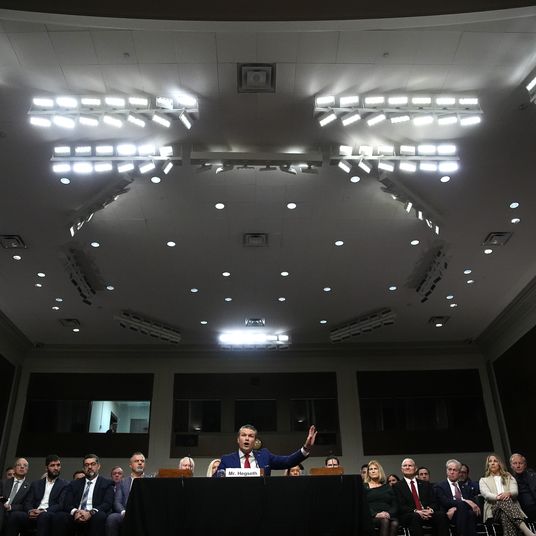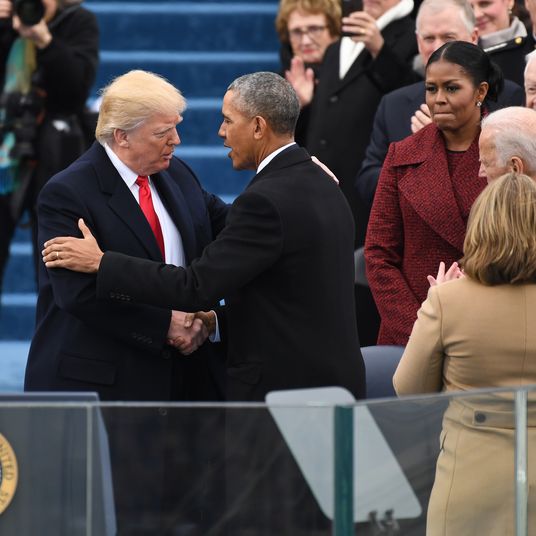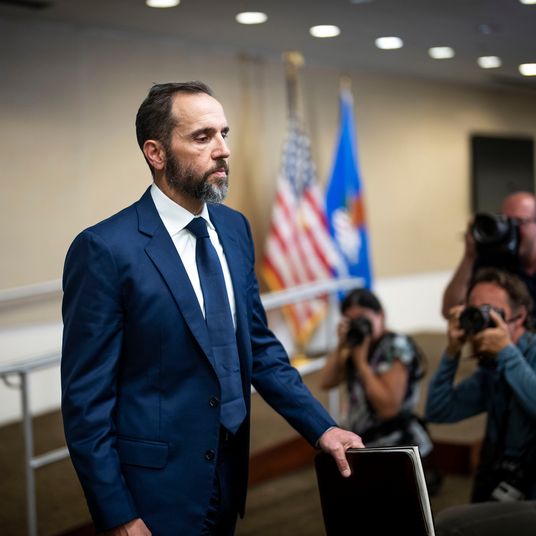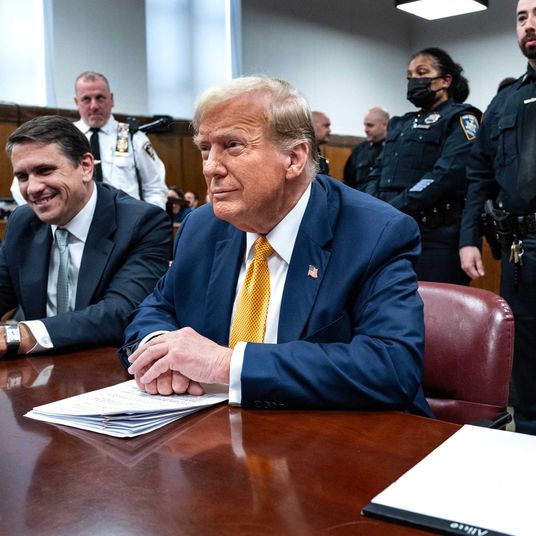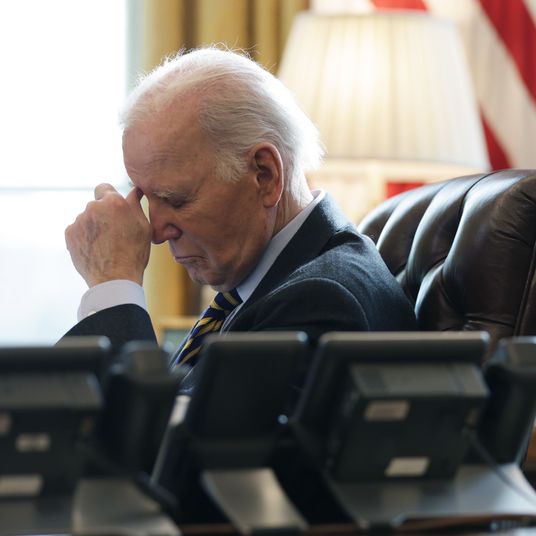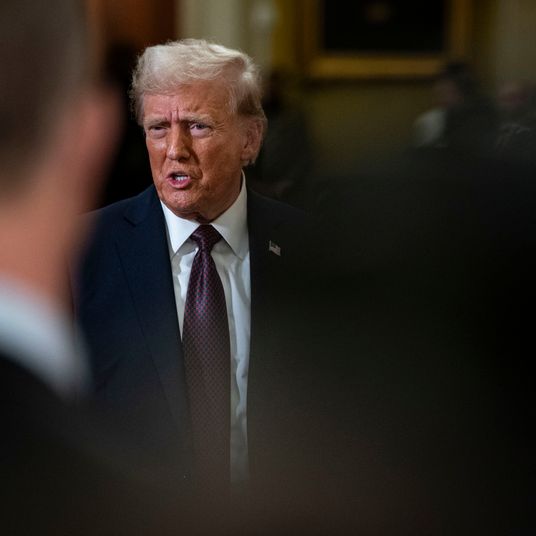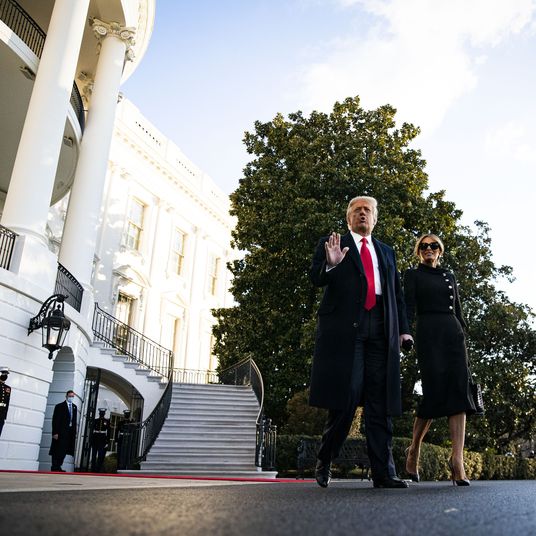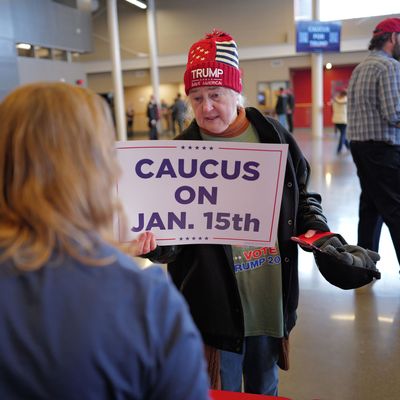
After a long run-up that reduced the field to Donald Trump and just three significant rivals — Nikki Haley, Ron DeSantis, and Vivek Ramaswamy — the voting phase of the 2024 Republican-presidential-nomination race begins with the Iowa caucuses on the evening of Monday, January 15 (yes, Iowa Republicans scheduled their caucus for Martin Luther King Jr. Day, seemingly by accident).
Here’s everything you need to know about this time-honored and arcane event, which has kicked off the GOP contest (and until this year, the Democratic contest) since 1976, from how voting works to how the results will impact the rest of the 2024 contest. (And don’t forget to follow Intelligencer’s live coverage of caucus night and the results here.)
.
How does a caucus differ from a primary?
Primaries are typically state-sponsored elections at regular polling places open to registered party voters and sometimes independents. At the presidential level, delegates to the national convention are bound (tightly among Democrats, more variably among Republicans) by primary results. A caucus, however, is a party-sponsored event almost invariably limited to party members, staffed by volunteers rather than election officials, and with a less uniform relationship to delegate selection. Because of these differences, caucuses generally attract significantly lower turnout than primaries and are often dominated by party stalwarts who tend to be more ideologically inclined than the average primary participant.
Democrats have all but banned caucuses as part of the presidential nominating process as, well, non-democratic (this is part of the reason Iowa has lost its first-in-the-nation status in that party). Meanwhile, Republicans have done little to discourage caucuses; eight state Republican Parties currently plan to use them in the presidential race this year.
.
When is the Republican Iowa caucus?
While primary voting last all day, caucuses, which are actually meetings, occur at a fixed time. This year the GOP caucus will take place on Monday, January 15, at 7 p.m. CST (8 p.m. ET). With the very limited exception of military-service members and registered Republicans living overseas, there’s no early or remote voting.
.
How does the Iowa Republican caucus work?
One important reason for the lower turnout in caucuses is that they involve a much greater time commitment. In a primary, you show up, vote, and go home. Caucuses, particularly in Iowa, are party-business events. Among Republicans, votes are often held on resolutions and other non-election matters, and in presidential years, representatives of candidates are allowed to make brief speeches. The caucuses also elect delegates to county conventions as the first step in naming national-convention delegates.
But Iowa Republicans emphatically do not follow the complex, multistage “affinity groups” system of first and second candidate preferences that helped make Iowa Democratic caucuses notoriously difficult to understand and also helped bring them down when the state party could not report results on Caucus Night in 2020. Republicans have a simple candidate-preference ballot (cast secretly), and the national-convention delegates, whoever they are, will be bound by the results.
.
Who is expected to win the 2024 Iowa Republican caucus?
Barring a seismic upset, Donald Trump is going to win the Iowa caucuses handily. He’s leading in the RealClearPolitics averages of Iowa polls by 33.8 points; he’s at 52.5 percent, followed by Nikki Haley at 18.7 percent and Ron DeSantis at 15.5 percent. By most accounts, Trump abundantly addressed the organizational deficiencies that led to his loss to Ted Cruz in the 2016 caucuses. The question most pundits are asking about Trump’s performance is whether he can actually win a majority of caucusgoers. But even if he doesn’t top 50 percent, his win will probably be historic: the largest margin of victory in any contested Iowa Republican caucuses was Bob Dole’s 12.8 percent in 1988.
.
What does the Iowa GOP caucus mean for the other candidates?
Nikki Haley and Ron DeSantis are in close competition for second place. The ancient saying is that “there are three tickets out of Iowa,” meaning the top three candidates in the caucuses will survive at least until the New Hampshire primary (which is on January 23). But that may not be true in 2024. DeSantis has placed such an enormous emphasis on Iowa, and has become so weak in other states, that a third-place finish might be curtains for him. Haley, on the other hand, is surging in New Hampshire, and while finishing second in Iowa could help her convey a sense of momentum, it’s not essential.
The big question in the race for second place is whether DeSantis’s vaunted Iowa field organization (buttressed by endorsements from opinion leaders like Governor Kim Reynolds and conservative Evangelical “kingmaker” Bob Vander Plaats) will enable him to overperform his standing in the polls. Haley has relied on heavy late TV advertising in Iowa in the absence of a major field presence, and she has benefited from an endorsement by the Koch network’s Americans for Prosperity group, which has its own Iowa operation. Haley could also be helped marginally by Chris Christie’s withdrawal from the race, though he doesn’t have much of a following in Iowa, having largely conceded the state to others. But as the vaunted Iowa Poll (sponsored by the Des Moines Register, NBC News and Mediacom and released on January 13) explained, Haley’s Iowa supporters are low in enthusiasm, and indeed, a good number are apparently Democrats or Democratic-leaning independents.
.
How many people will participate in the Iowa GOP caucus?
There are just over 752,000 registered Republicans in Iowa who are eligible to participate in the caucus. Registered Democrats and independents are excluded, but Iowa law makes it possible for voters to change their party-registration status on Caucus Night. In the last contested Republican caucus in 2016, a record 187,000 votes were cast. Prospects for beating that record in 2024 were initially good given the steady growth of the Iowa GOP in recent years and the fact that this year’s caucuses are being held on the federal Martin Luther King Jr. holiday. But forecasts of brutally cold subzero temperatures (the coldest in caucus history) on January 15 make that problematic. Iowans can handle very cold weather, but if icy conditions occur, it could seriously affect turnout among the elderly voters who typically dominate caucuses.
.
What are Iowa Democrats doing on Caucus Night?
Democrats are caucusing on January 15 as well, but only to conduct routine party business. As part of the “reforms” by which the Democratic National Committee juggled the primary schedule and excluded Iowa from the “early states” allowed to hold contests before March 1, Iowa Democrats will express their presidential preferences via a mail-in primary on March 5. So presidential preference has been disconnected from the caucuses entirely.
The low stakes of the Democratic caucus has led to some buzz about Democrats changing their party registration on Caucus Night and voting in the GOP caucus, particularly for Nikki Haley as the least right wing of viable Trump rivals. But it’s unclear whether a significant number of voters will go to that much trouble to meddle with the other party’s process.
.
What comes next after Iowa?
New Hampshire votes just eight days after Iowa, and though occasionally Iowa winners get a bounce in the Granite State, just as often New Hampshire goes in a different direction (a tendency buttressed by the state’s very different demographics, which lean less Evangelical and better educated than Iowa’s). Nevada has a February 6 primary and February 8 caucus, but there’s no real contest there since Haley is running only in the former and Trump is totally dominating the latter. So there’s a monthlong break between New Hampshire and the February 24 primary in Haley’s home state of South Carolina, where Trump is very strong. If the nomination hasn’t been decided by then, it likely will be in March, when about two-thirds of all Republican delegates will be awarded.
More on politics
- Republicans Salute Hegseth at Confirmation Hearing
- Michelle Obama Isn’t Sick — She Just Hates Trump
- Trump Cabinet Confirmation Hearings: Schedule & How to Watch






